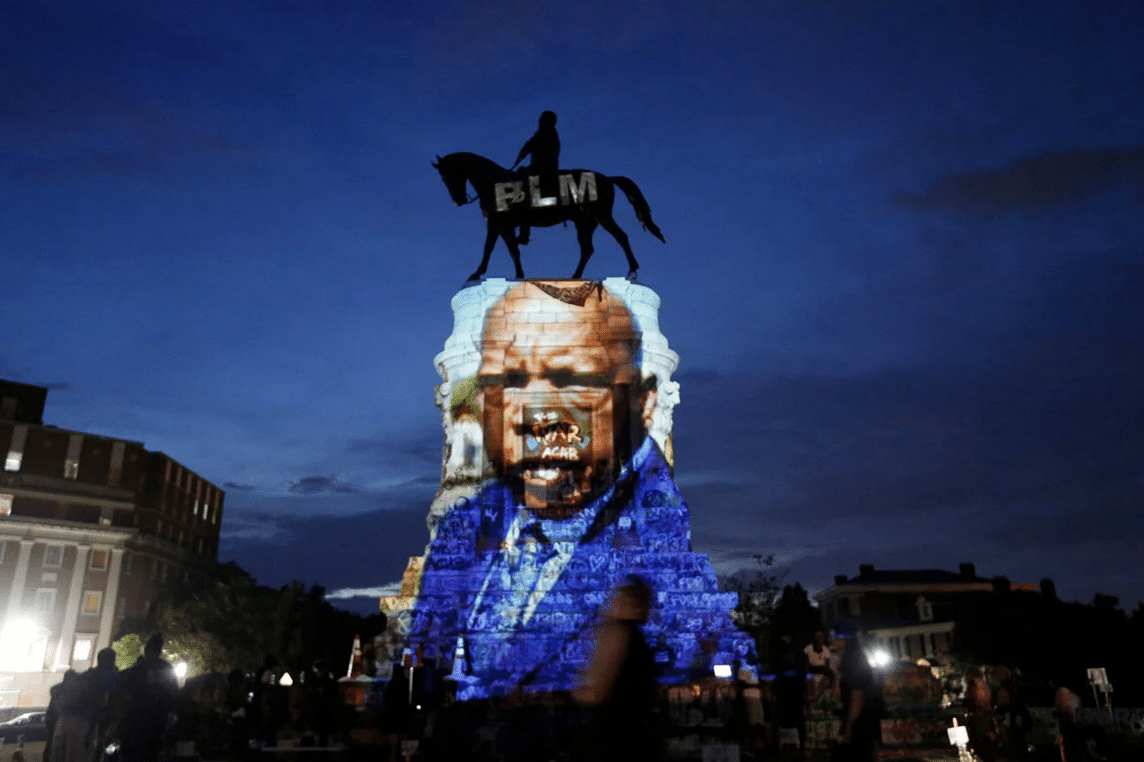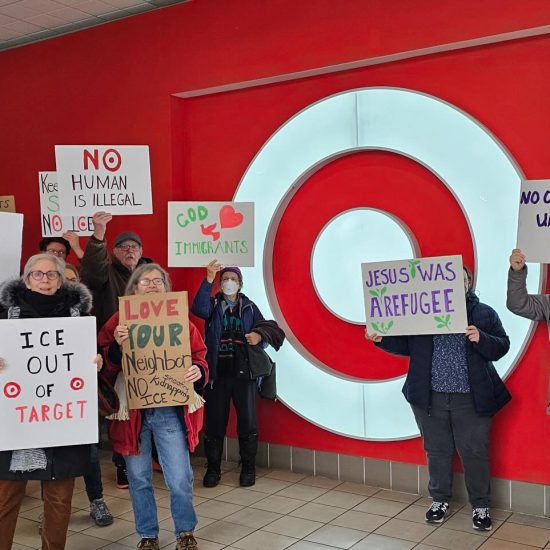
(RNS) — “The past is never dead. It’s not even past,” William Faulkner once famously quipped.
The Mississippi writer had it right — at least when it comes to the Civil War, anyway. A war that split America as it was fought continues to do so in its memory.
When it comes to memorializing the nation’s Civil War legacy, Americans are nearly evenly divided over whether to preserve Confederate symbols, memorials and statues, according to a new Public Religion Research Institute survey.
The new PRRI survey conducted with E Pluribus Unum, a nonprofit organization dedicated to building a more equitable and inclusive South, finds that 51% of Americans favor preserving Confederate history, memorials and statues, while 46% are opposed.
That division can be found on a host of issues. Take the Confederate flag: 50% see it primarily as a symbol of Southern pride, while 47% see it mostly as a symbol of racism.
The divisions fall along party, race and religious lines: Republicans and white evangelicals overwhelmingly support preserving memorials to Confederate history, while Black Americans, non-Christians, Jews and unaffiliated Americans see those memorials as a symbol of racism.
“One of the things the report is telling us is that we still have not resolved one of the fundamental conflicts that has haunted us throughout American history,” said Robert P. Jones, president and founder of PRRI. “It’s the question of whether the country is a promised land for European Christians that has white supremacy embedded in that idea, or whether we’re a pluralistic democracy where everybody stands on equal footing before the Constitution.”
The Southern Poverty Law Center’s database shows there are more than 2,000 Confederate symbols in the U.S. and Puerto Rico, disproportionately in 11 Southern states.
But the country’s divisions over the legacy of the Confederacy are bigger than geography. They exist in all parts of the country and can best be predicted by party affiliation, race and religion.
Nearly 9 in 10 white Republicans, or 87%, support efforts to preserve the legacy of the Confederacy, compared with 23% of white Democrats. When examined by race, 57% of white Americans support efforts to preserve Confederate legacy, compared with 23% of Black Americans.
Religion is also a predictor of attitudes toward the Confederacy. Majorities of Protestants, Catholics and Latter-day Saints support such efforts to preserve Confederate monuments and memorials, with white evangelicals besting all others at 76%.
Support falls to 35% among non-Christian Americans, Jewish Americans (33%) and religiously unaffiliated Americans (33%).
The survey was conducted among a sample of 5,439 adults in all 50 states. It has a margin of error of plus or minus 1.7 percentage points.
The survey did point to some areas of common ground. Nearly all Americans (90%) supported efforts to “tell the truth about the history of slavery, violence and discrimination against racial minorities” as well as efforts to “promote racial healing by creating more inclusive public spaces.”
And a majority of Americans support monument reform of some kind. The PRRI survey broke down support and opposition to reforming Confederate memorials into four categories: 24% said they supported removal of all Confederate memorials, 18% said they opposed removing memorials, 30% lean toward reform and 24% lean against reform.
Liberal Democrats and liberal independents were 20 times as likely to support Confederate monument removal as conservative Republicans. Religiously unaffiliated Americans and non-Christian Americans were twice as likely as white evangelicals to support removal.
Black Americans were three times as likely to support removal as white Americans.
Americans were also divided on renaming public schools and mascots. But majorities of Americans favored the idea of local governments providing mortgage assistance for people whose descendants were denied home loans because of their race. A majority also favor scholarships for descendants of enslaved people forced to construct those campuses. (White Christians were least likely to favor those efforts.)
E Pluribus Unum, an organization founded by former New Orleans Mayor Mitch Landrieu, is working in 13 states, including among congregations of faith, to drive conversation around systemic racism and economic inequality.
“We use a phrase, ‘relentless incrementalism,’” said Scott Hutcheson, managing director of E Pluribus Unum. “Every data point shows us a path. It is depressing but we have to believe it’s not hopeless.”
Ahead of the Trend is a collaborative effort between Religion News Service and the Association of Religion Data Archives made possible through the support of the John Templeton Foundation. See other Ahead of the Trend articles here.







